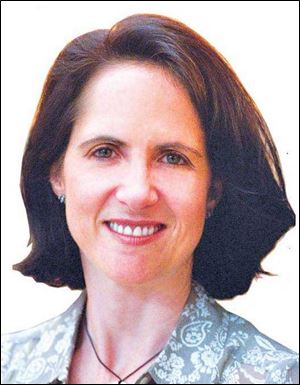
Five questions for Lynn Novick
9/21/2007
Lynn Novick
FIVE QUESTIONS FOR... Lynn Novick, long-time producer for Ken Burns, from The Civil War (1990) to Baseball (1994) to The War, which starts Sunday night:
Q: When you first hear about The War, this 16-hour PBS documentary about World War II, the first thought is: Why? Hasn't this ground been covered by every Hitler Channel on cable?
A: We were concerned about that. It is well worn. On the other hand, it's the greatest conflict in human history. But we were mindful of what was done and we didn't want to waste anyone's time, including ours. So we set out to breath life into it. The idea was not to follow Hitler and Roosevelt but ordinary people. That's been done, too. But to do it broader, without focusing on a battle or a unit, was the premise.
Q: How much did you know about World War II going in?
A: We learned as went along. Me, I knew not that much. Ken knew quite a bit more, but I hadn't studied it in any substantial way. I know that sounds odd, but we found the respective historians and received reading lists and we just start diving into it.
Q: From there, how do you decide who you'll talk with and which soldiers you'll include? Is it random or more calculated?
A: It's pretty much a feeling. At the beginning we were open to any kind of story, so we just met people and if they seemed to have charisma and were mentally competent we stuck with them - many of the vets are in their 80s and perhaps not ready to maintain themselves for a long interview. But the goal was to find combat veterans who could talk about the experience, and from there we would fill in their neighbors, their family members. And if you've been through combat often you don't want to talk about it. But we never meant to be comprehensive.
Q: Which is exactly what you took flak for when Hispanic groups complained about not being included in the picture.
A: On every film we pretty much expect someone will come forward and say you didn't tell the story the way I would have wanted it told. That's part of the process of starting a dialogue. In Jazz, lots of people complained about our approach. Same thing with Baseball. In this case it became more politically complicated and charged. We heard the concerns of the Latino community and we weren't going to change the film but we made sure to address their concerns.
Q: That said, a Ken Burns film is seen as a definitive history by a many people; it's the way a lot of people, especially students, will get that history. It is held up to a canonical standard in a way other documentaries are not.
A: I don't know if that's because they air on PBS, but I don't think we ever presume to be definitive. It's personal filmmaking. But then no one else does what we do. No one else can or has marshalled the resources to do a 20-hour film on jazz - which is not a popular music. The people who are schooled in our subjects know there will not be another film like the one we make and that it will reach a broader audience than those already versed in the subject. And that just ups the anty for everyone, I suppose.
- CHRISTOPHER BORRELLI